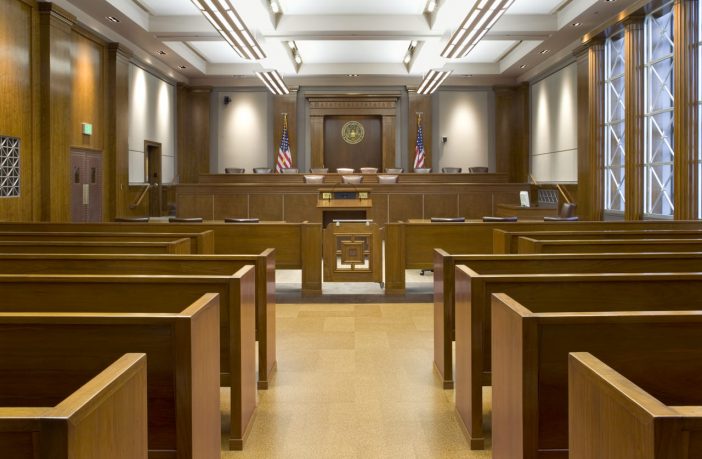For months, open borders advocates have been complaining about the Trump administration conducting immigration hearings via a satellite video teleconferencing (VTC) platform. Although the U.S. Immigration Court has been using VTC for close to two decades, it recently ramped up the number of video hearings in order to respond to the overwhelming number of migrants requesting asylum hearings at the southern border.
According to the Wall Street Journal, video hearings raise “due process concerns” because “migrants face a judge on a screen and a lawyer they can’t see.” In essence, the complaint is that the physical disconnection caused by VTC deprives asylum seekers of a meaningful opportunity to pitch their case.
The criticisms about the disconnection resulting from the physical separation inherent in the process have also been accompanied by complaints that backlogs are too large and migrants are being asked to wait too long in order to have their cases heard.
Ironically, though, the physical distance created by video hearings, along with the constant public health surveillance of individuals in U.S. Immigration and Customs Enforcement (ICE) custody has put the Immigration Court in a position to keep operating when many other courts throughout the nation have suspended proceedings in response to the worldwide coronavirus outbreak.
Nevertheless, the decision to keep Immigration Courts open has also prompted criticism from the open borders contingent. According to Vox, “The continued openings of… immigration courts point to a disturbing trend in our judiciary system in the midst of Covid-19: The most vulnerable groups are being forced to put themselves in high-risk situations for proceedings they dare not miss.“
But that assertion is riddled with falsehoods that the majority of the mainstream media has been unwilling to address:
- The primary risk to immigrants who are here illegally, or who have broken our laws after having been lawfully admitted, is deportation to their native country where they have full rights of citizenship. That hardly places them amongst the most vulnerable groups in our society.
- Going to Immigration Court isn’t a high-risk situation. The Immigration Court is going forward only with hearings for those individuals who are detained in ICE custody, and those waiting for asylum hearings in Mexico, pursuant to the Migrant Protection Protocols (MPP) program. As noted above, aliens in ICE custody are subject to constant public health surveillance. And the MPP hearings are being conducted by VTC, which eliminates any risk of COVID-19 infection.
So, what’s the real deal? Simply put, the open borders contingent isn’t concerned about the spread of the coronavirus. It is more interested in ensuring that aliens maximize their time in the U.S. Lengthy closures of the Immigration Courts would give alien lawbreakers a chance to disappear, try to avoid ICE, and attempt to find a way to remain permanently in the U.S. If it were genuinely concerned with the global pandemic, it would be vociferously supporting President Trump’s travel restrictions. Those measures, however, have been roundly dismissed by alien advocates as “xenophobic.”
But the Trump administration’s decision to keep hearing immigration cases is a wise one. There are nearly a million cases backlogged at the Immigration Court and the COVID-19 outbreak isn’t keeping foreign nationals from breaking our immigration laws. If social distancing and isolation measures persist for any length of time, an ill-considered closure of the Immigration Court could easily lead to a marked increase in that backlog. Deportation proceedings are essential to American sovereignty and they should continue, even in the face of a national crisis. Border security and public health security go hand in hand.




